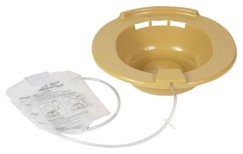Rectal Problems
The rectum is the lowest part of the large bowel (colon). The opening of the rectum is the anus. Stool are passed from the anus.
Signs & Symptoms
-
•Rectal pain.
-
•Rectal bleeding.
-
•Anal itching.
-
•Redness, swelling, or a rash in the rectal area.
Causes
For Anal / Rectal Pain and/or Bleeding
-
•Constipation. Straining to pass stool. Hemorrhoids.
-
•Anal fissures. These are splits or tears in the skin around the anus.
-
•Polyps or small growths.
-
•Injury due to anal intercourse or the insertion of a foreign object.
-
•Blockage in the intestines.
-
•Colon or rectal cancer.
For Anal / Rectal Itching
-
•Dry skin. Products that irritate or cause a skin allergy in the anal area. Examples are over-the-counter anesthetic ointments that end in “caine,” such as benzocaine.
-
•Psoriasis. This is a chronic skin disease. With this, itchy, scaly red patches form on a part of the body.
-
•Pinworms. These are intestinal parasites. They usually affect children. The anal itching is at night and can be painful.
-
•A fungal infection.
Often there is no clear cause. Persons with diabetes and liver disease are more prone to rectal itching.
Treatment
Treatment for rectal problems depends on the cause. Any sign of rectal bleeding should be evaluated by a doctor. This includes blood on toilet paper. Colon cancer should be checked for, despite the person’s age or family history of this disease.
























